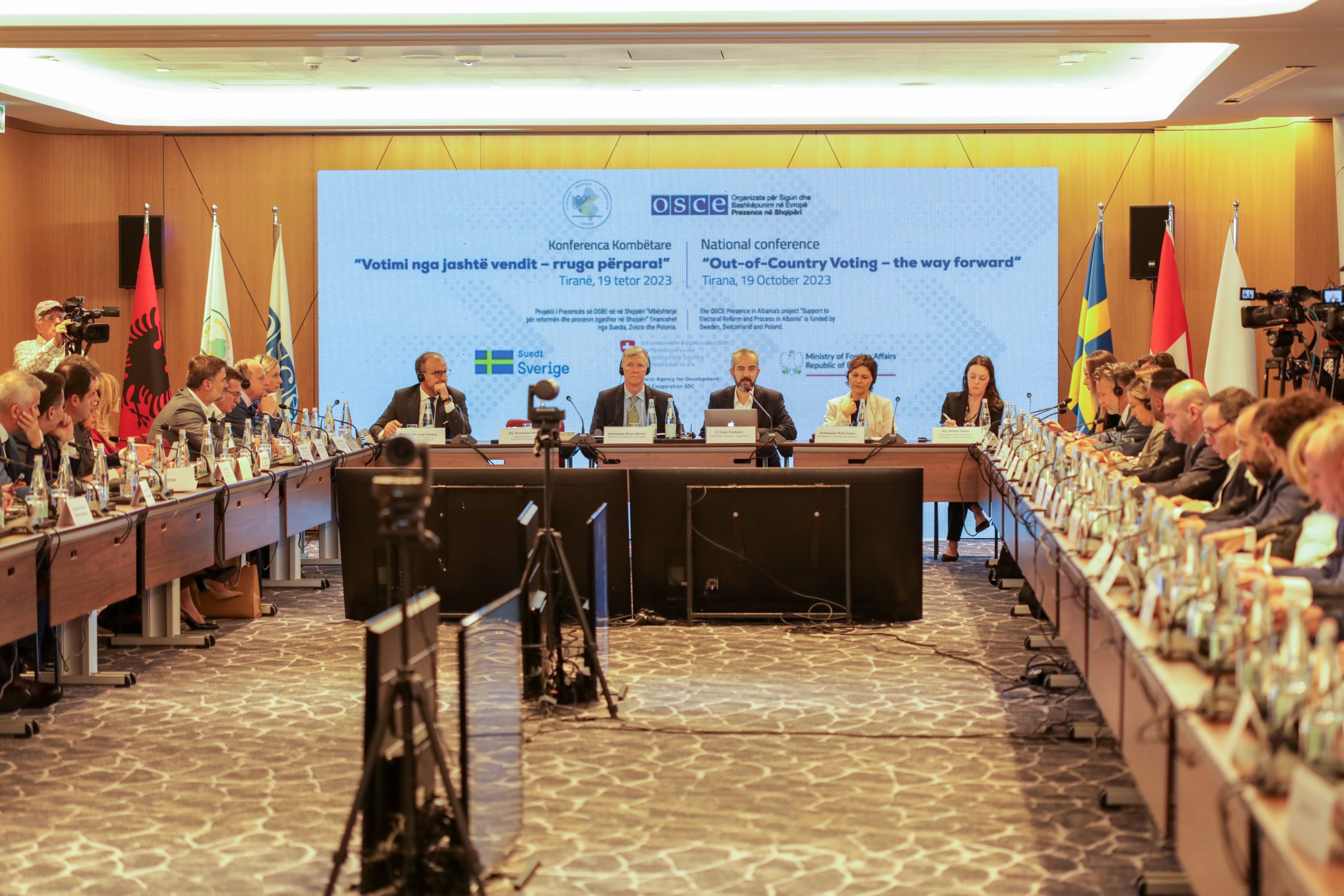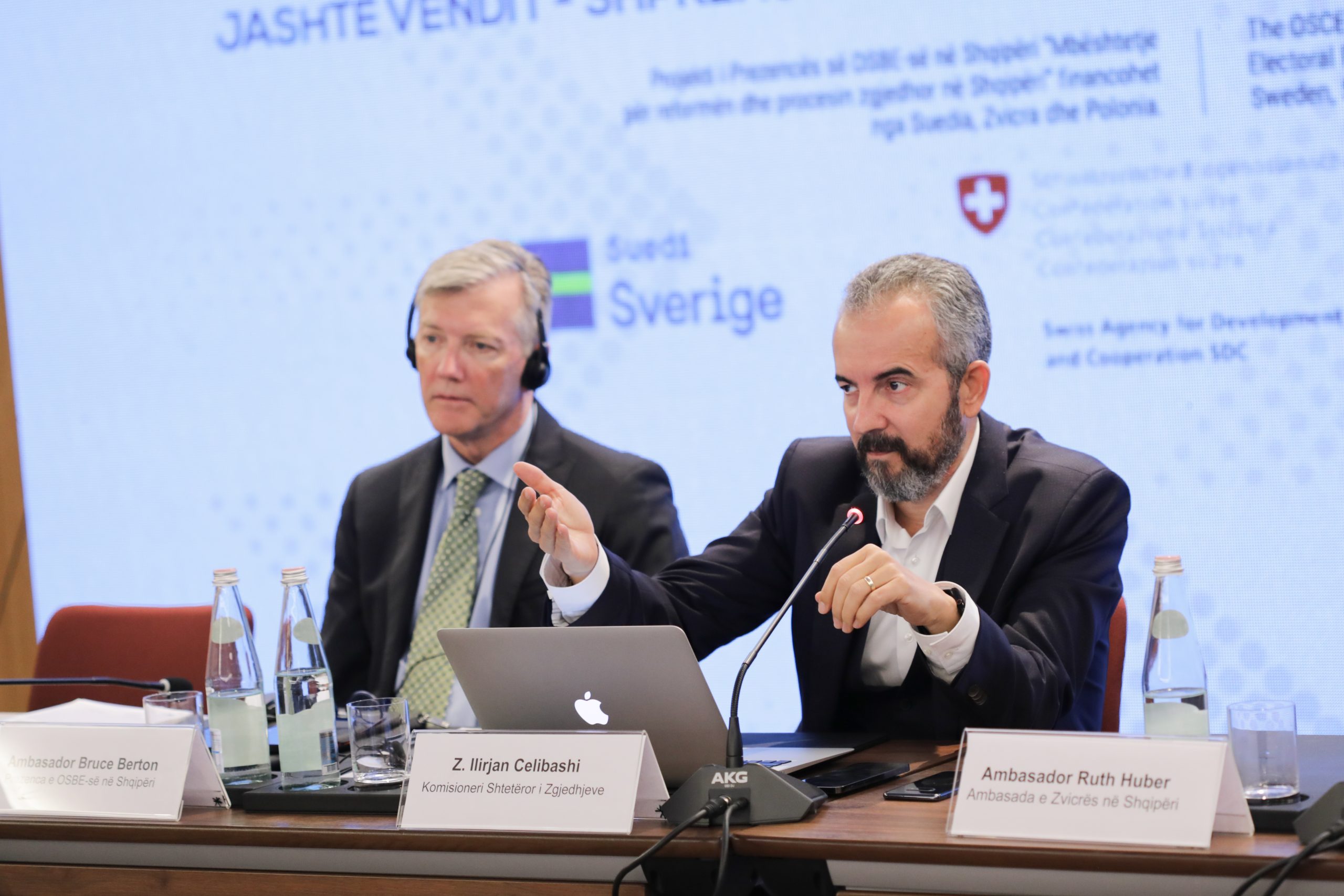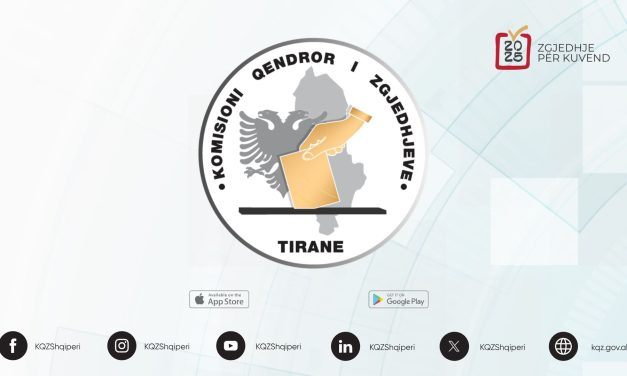The full speech of the State Election Commissioner, Mr. Ilirjan Celibashi at the national conference “Voting from Abroad – The Way Forward”, organized by the CEC in cooperation with the OSCE and supported by the Embassies of Switzerland, Sweden and Poland.
“I would like to thank OSCE Presence in Tirana for co-hosting this conference together with the Central Election Commission and for the significant support this organization has given to our institution constantly and unhesitatingly.
I would like to express my gratitude and appreciation to the Embassy of Switzerland, Sweden and Poland for the generous support, by financially supporting the organisation of this Conference. I also would like to thank the members of Parliament of Albania, representatives of the diplomatic corps, political parties, public institutions and civil society organizations, who, despite their engagements, have accepted the invitation of the CEC and the OSCE Presence to participate in this Conference, giving thus this issue the credit it deserves.
Thank you also to all the experts engaged in this initiative.
It is because of our role as an institution responsible to prepare and administer the elections in Albania, but also due to our civic interest that we undertook the initiative to hold this discussion on the so-called “voting from abroad” with the participation of all stakeholders or interested parties in this process.
The question is: will it be possible to vote from abroad for the upcoming general parliamentary elections to be held in 2025?
When answering this question, we must take into consideration the current legal and political reality, as well as the expectations for these realities in the future.
At the end of its summer session in 2020, the Albanian Parliament approved several amendments to the Electoral Code which stipulated, for the first time in Albania, legal provisions regarding voting from abroad.
These provisions determined precicely that (i) voters residing outside the territory of the Republic have the right to vote where they reside and (ii) that the CEC is the institution responsible not only for the organisation and administration of this process, but also for issuing relevant normative acts.
These normative acts should define the rules on: (i) how to register those individuals who live outside the territory and want to vote where they reside, (ii) the conditions and criteria that qualify a voter as such , (iii) the way of voting and (iv) the calculation of mandates from the voting from abroad.
The CEC was reorganised in October 2020. The parliamentary elections were going to take place in April 2021. So the CEC institution, within a period of less than 6 months, had to (i) approve all by-laws and (ii) prepare all the technical and human infrastructure for the implementation of the voting from abroad.
Even though we made maximal efforts to reach a consensus between the party in power and the opposition, to approve at least the by-laws, we could not pass them. This was also due to the limited time that was available to us.
As a result, the Albanian voters residing outside the territory of the Republic of Albania could not vote where they resided, even in April 25, 2021 parliamentary elections.
The Constitutional Court, in its decision no. 38 dated 09.12.2022, after examining the request of the Association “Diaspora for Free Albania” decided:
To partially uphold the request.
To find the breach of the constitutional right of vote for the immigrants in the parliamentary elections, as a result of the legal vacuum.
The Parliament’s obligation to fill the legal vacuum within a year.
To drop the case regarding the Order no.219, date 19.04.2021, issued by the Ministry of Health
Therefore, based on the Constitutional Court (CC) decision, the current Electoral Code has a vacuum, a vacuum that prevents the implementation of voting from abroad. CC has also illustrated in its reasoning where these gaps consist. And in order to fill this vacuum, CC has established that it is the obligation of the Parliament to finalize these changes within one year, that is, within December 9 of this year.
Will the Parliament of Albania meet this obligation set by Constitutional Court?
I do not know.
Should the Parliament meet this obligation of the Constitutional Court?
I think it should.
What happens if the Parliament does not comply with this order of the Constitutional Court? Of course, there is no sanction for the Parliament if it does not execute the decision of the CC.
But on the other hand, at least in my estimation, it means that voting from abroad will not be possible until the gaps in the Electoral Code are filled. Someone might have a different interpretation and understanding from what the Constitutional Court has found and what it has ordered.
I do not believe that a different interpretation of the Constitutional Court Decision, even if it had the full political and party consensus between the ruling party and opposition, would pave the way for the implementation of voting from abroad.
In my opinion, the amendment of the Electoral Code is the first and sine qua non step to enable voting from abroad in 2025. Therefore, based on our competence and as far as legal framework permits us, we encourage the ruling party and the opposition to agree on the required changes to the Electoral Code related to voting from abroad.
It is important that the rules on (i) registration of voters from abroad (ii) the voting method and (iii) the counting of votes, the issue of the election result and the determining the winning mandates by voters from abroad are approved as soon as possible, preferably within this year, as the Constitutional Court orders”.


